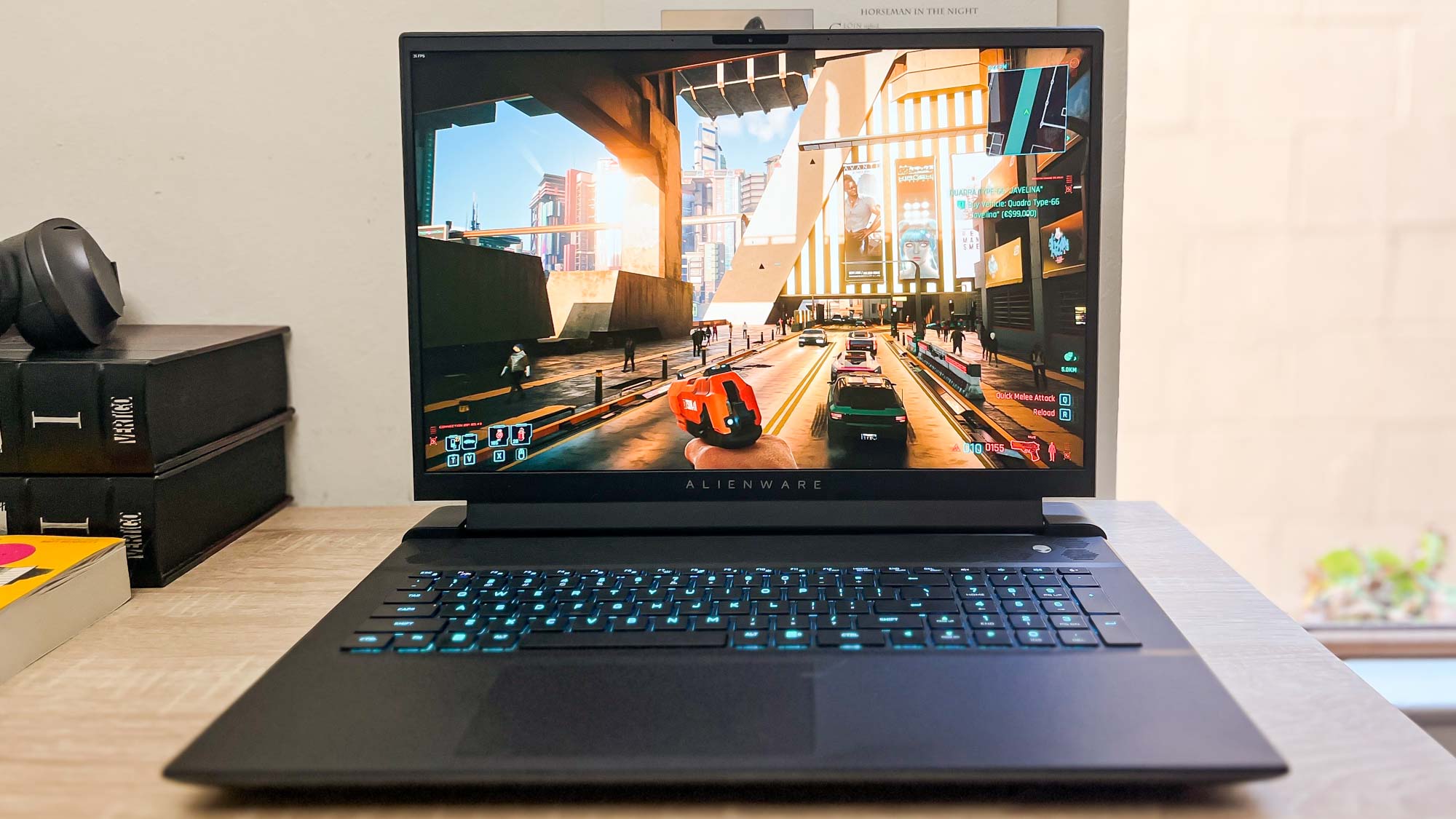
Gaming laptops are some of the most powerful (and most expensive) portable PCs on the market. Just like the best gaming PCs, these pint-sized powerhouses promise killer performance in your favorite games — but they often come with equally killer price tags.
I know not just because I review them for a living here at Tom's Guide, but because I've been building and buying my own gaming PCs since I was a kid. I have fond (?) memories of convincing my parents I had to have a high-performance laptop with a discrete GPU when I went away for college, even though the most demanding thing I ever had to do in school was edit text and images.
But after class I wanted to play games like Crysis and Prototype 2, so I managed to wring about $2,000 out of my folks (thanks, Mom and Dad!) for a college laptop. But even back in the olden days, you couldn't get the top-tier best gaming laptops for that little cash.
Instead, I spent days hunting through online marketplaces to find the best gaming laptop I could get for the money I had and ultimately settled on a nice 16-incher from Sager Notebooks. Sager had a reputation then as a reputable white-label company, which means other boutique gaming laptop companies were buying Sager notebooks and customizing them with their own logos, software and branding. I didn't care, as long as it meant I could get the laptop I'd had my eye on at a price that was hundreds of dollars less than if I'd bought it from a better-known brand.
Fast forward to today and Sager is still on the market cranking out laptops, but nowadays I make enough writing about PCs that I can afford to save up and buy top-tier gear. But since companies send us units for review I still get to see all the latest and great gaming laptops as soon as they hit the market, and it seems like they've only gotten more expensive since I was a kid.
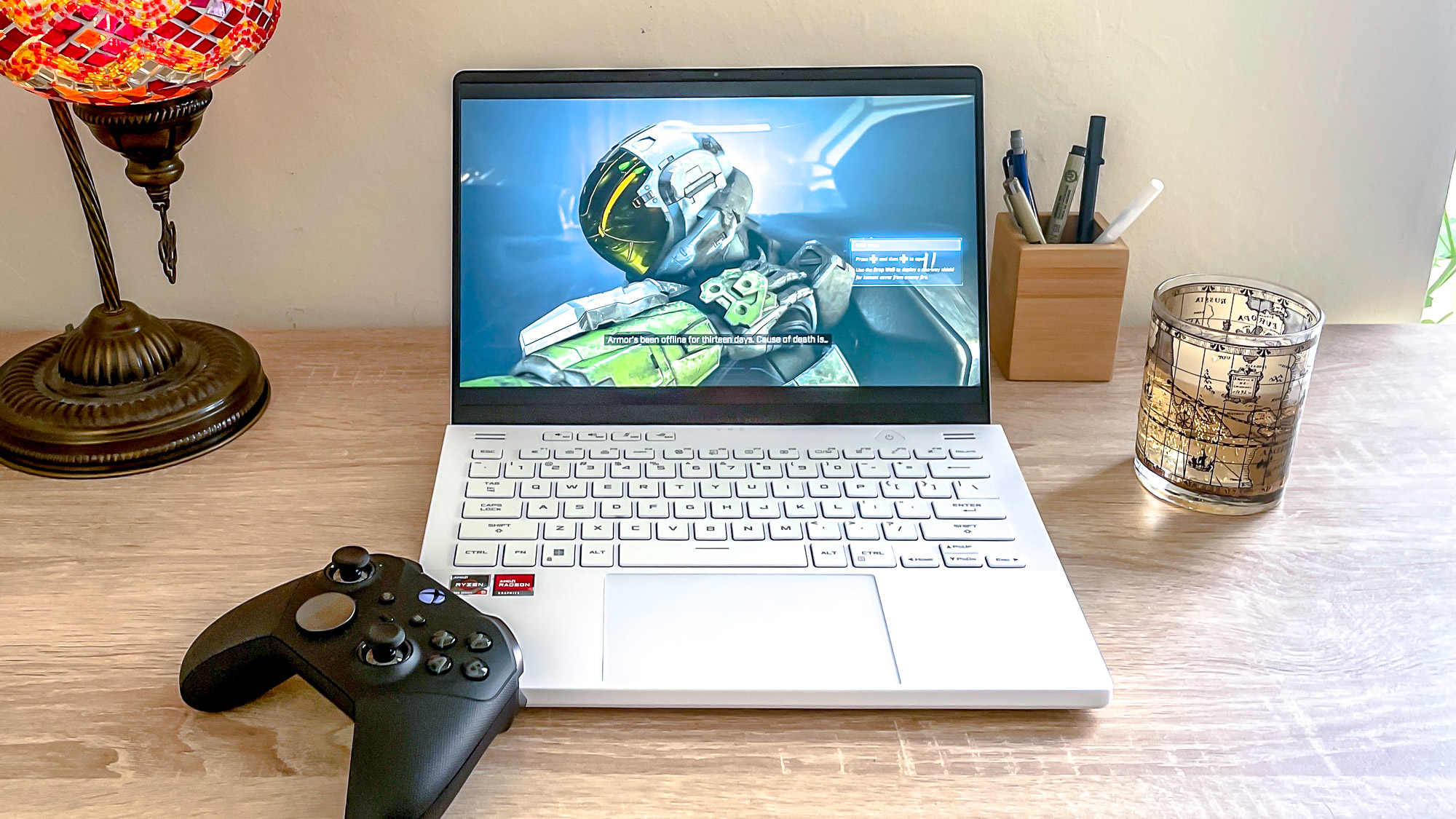
Gaming laptops have gotten a lot better in the last 15 years, too. They can be thinner, lighter, more powerful and more power-efficient than my old Sager ever was. They're also quieter and more appealing to the eye, and you can now get them with designs that don't look like they sprang straight out of some low-budget sci-fi movie concept art.
Heck, in some cases it can actually feel like a pretty good deal to get a gaming laptop. We recently received a request to review a cutting-edge gaming laptop that retails for roughly $3,500. And while that's an eye-boggling sum, it starts to make sense when you know this gaming machine is equipped with a laptop-grade Nvidia GeForce RTX 4090 GPU and one of the most powerful 14th Gen Intel Raptor Lake Refresh CPUs currently available, as well as 32GB of RAM and a speedy high-resolution display.
Factor all that in and it starts to look like a pretty good value since this laptop is effectively equipped as well as the heavy Alienware Aurora R15 gaming desktop I reviewed last year. That Aurora PC cost nearly $5k at the time we reviewed it. While that price has dropped in the year since, it's still not far off from the $3.5k gaming laptop I mentioned. The laptop also has the added bonus of coming with its own display optimized for games — so there's no need to shell out for a monitor.
But with a gaming laptop you have to accept a few compromises that are avoidable with a gaming PC. For starters, gaming laptops tend to deliver less raw performance per dollar than desktops because they're constrained by their small size. The size and space limitations of a laptop chassis mean less effective cooling than a desktop, which translates to reduced performance across the board. This happens even when you're plugged into an outlet, and when you switch to gaming on battery power you often see performance decrease even further.
As fond as I am of gaming laptops, I often have a hard time recommending them to readers because they're heavy, loud and expensive."
Plus, you're limited by whatever ports are built into the laptop. This is true with a desktop as well, but desktop PCs typically come with far more ports and are easier to augment with more, because you can swap out the motherboard. On a laptop, you better hope you find a machine with ports to support all your favorite peripherals, as well as a dedicated Ethernet jack if you want to play online games at competitive speeds. You can work around these limitations somewhat by investing in a USB hub and whatever dongles you need, but it's still a frustrating issue.
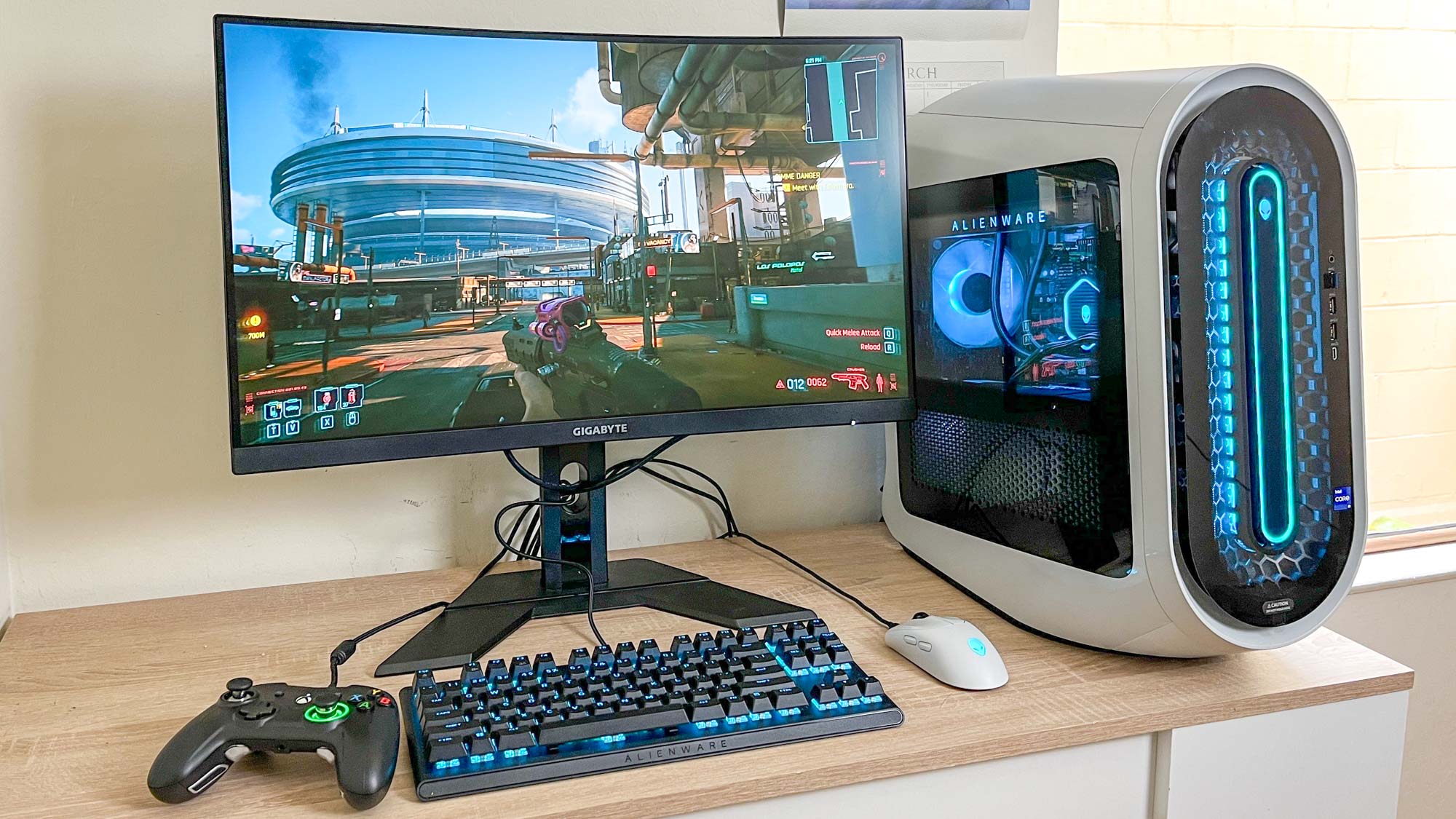
So as fond as I am of gaming laptops, I often have a hard time recommending them to readers because they're heavy, loud and expensive. In general I think gaming laptops are ideal for students, digital nomads or folks who are on the road a lot, as what these machines lack in versatility or power they more than make up for in pure portability.
This ended up sparking a long discussion in one of our meetings this week, so rather than subject you to my opinions alone I thought I'd open the floor up to everyone on the Computing team here at Tom's Guide. Together we have decades of experience using, reviewing and writing about computers, so I hope their insights help you understand all the options you have for PC gaming at home and on the go.
Gaming laptops are great because they handle both work and play
Let me be clear. None of what I'm about to say doesn't come without knowing you can get a gaming desktop that packs a lot more punch for what you pay when compared to a laptop.
From laptop-specific GPUs (Nvidia is a little sneaky with its branding around this IMO) to the reduced power draw of said components and upgradeability of a desktop, it should be a pretty open-and-shut case in support of buying a tower, right?
Well, I think the answer is a little more complicated than that, and whenever faced with the choice between buying a gaming PC or a laptop, I've always opted for a laptop. Why? Well, that portability can be a versatile godsend at times.
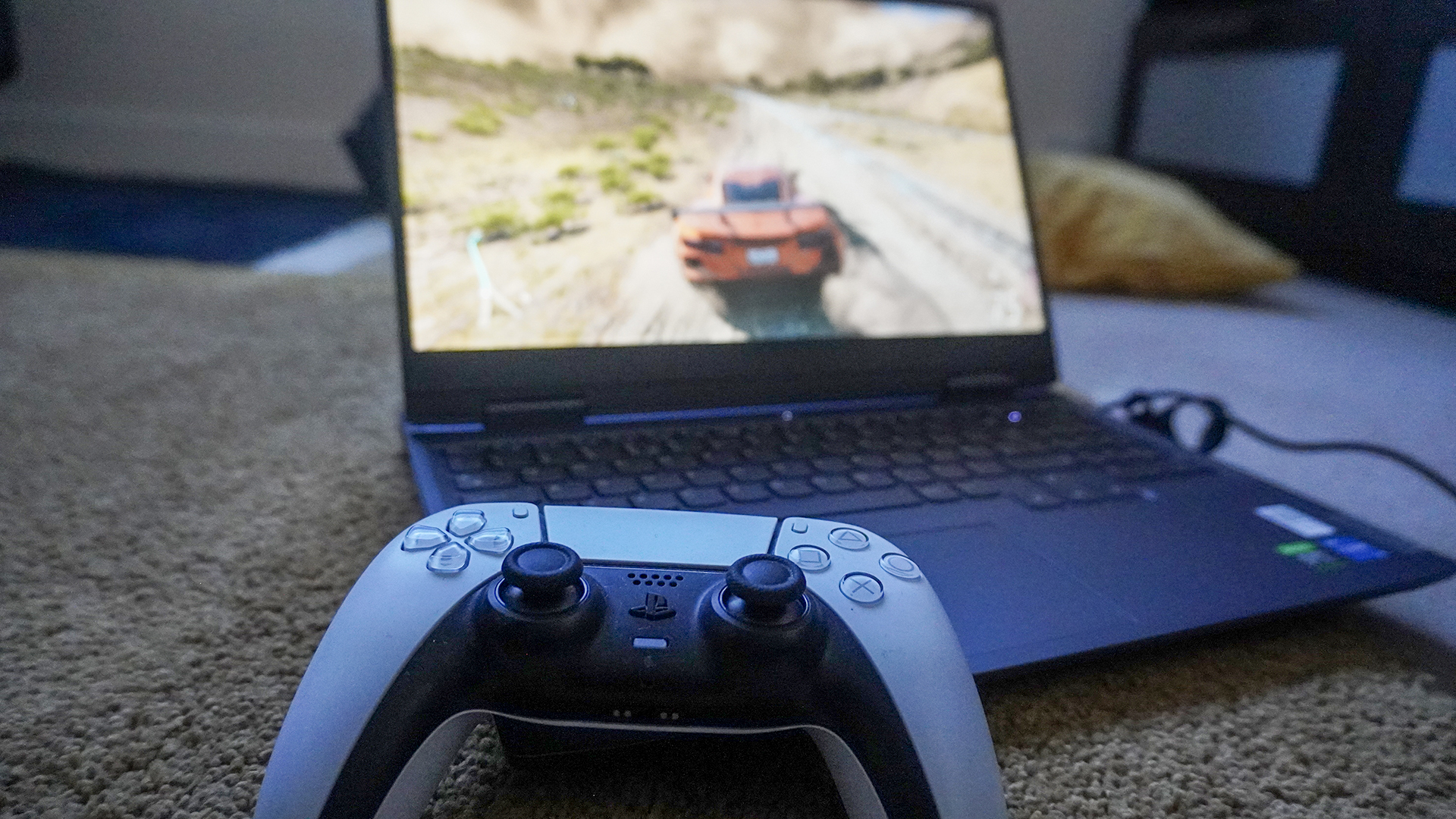
After working away for hours at my desk, being able to retire from it to play games is quite a fundamental part of my self-care — the separation of my work and personal life and all that good stuff. To be able to wrap up on the couch, get out my laptop tray and play keeps me away from any sort of work environment. What’s even better is that the gaming laptop handles both work and play. The versatility means I only need one device for everything I want to do — whether I’m at home or traveling. No more need to take up my carry-on backpack with both a laptop and a Steam Deck!
That's not to say I couldn't opt to stick at my desk and play. I do so a lot with games like Two Point Campus and Age of Empires. The beauty of a gaming laptop is the versatility of the ways you can play.
Plus with DLSS, I don't feel that compromise between laptop and desktop whatsoever. If you're a purist for resolution and framerate without any need for AI frame generation, I have no beef with you. This is just how I feel, and to most gamers after really thinking about it, chances are you'll feel the same.
Finding the price/performance sweet spot is hard
I’m torn on the current state of gaming laptops. I recently wrote about how my powerful desktop rig and Steam Deck OLED have hurt my love for laptop gaming. So many options in the market right now just don’t hit that sweet spot between price and performance.
If you can somehow find a gaming laptop with an Nvidia GeForce RTX 4070 GPU and a decent CPU for around the $1,000-$1,200 mark, I’d encourage you to act on your splurging instincts. The trouble is, that price point is more RTX 4060 territory, which is a graphics card I’m less comfortable recommending, especially in its laptop form.
And if you want to go really high-end and seek out a system with an RTX 4090, a top-tier Intel or AMD processor and a screen that sports a high refresh rate with a screen resolution of at least 1440p, you’re probably looking at an investment of around $3,000. Unless you’re a recent Powerball USA winner, that’s a hard price tag to stomach.
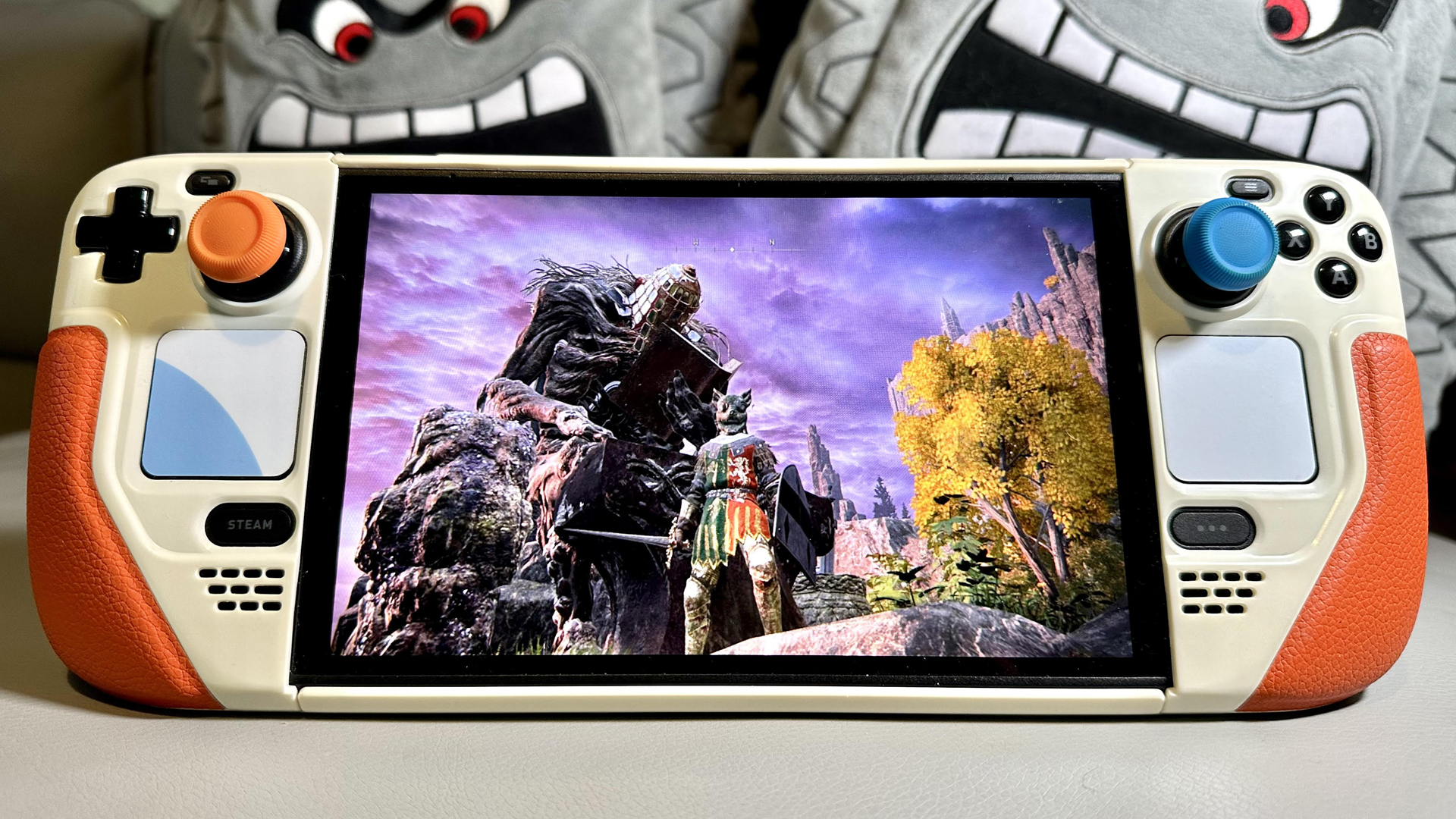
Just think what that eye-watering sum could get if you invested it more wisely. You could easily nab a good 55-inch OLED TV, a PS5, Xbox Series X and still have money left over for a Steam Deck. Right now, a lot of gaming laptops just aren’t hitting the right cost vs performance ratio.
I really don’t want to end this rant on a gloomy note, though. So I’ll just say that with the advancements the industry continues to make with supersampling and other machine-learning techniques that should place less emphasis on physical hardware going forward, squeezing higher frame rates out of the best PC titles should get ever more achievable for reasonably-priced gaming laptops going forward.
Laptops are great for some, but I'll always prefer gaming on a PC
This might come off as hypocritical, but even though I review and recommend gaming laptops to people, I don't own one... nor do I plan to.
Don't get me wrong, I think gaming laptops are a wonder of technology since they pack so many components on a single device. Display? Check. Keyboard? Check. CPU and GPU? Check and check. With the right machine, you're able to play even the most graphically demanding PC games at super-high framerates and equally high refresh rates. And unlike desktops, you can take a gaming laptop wherever you go.
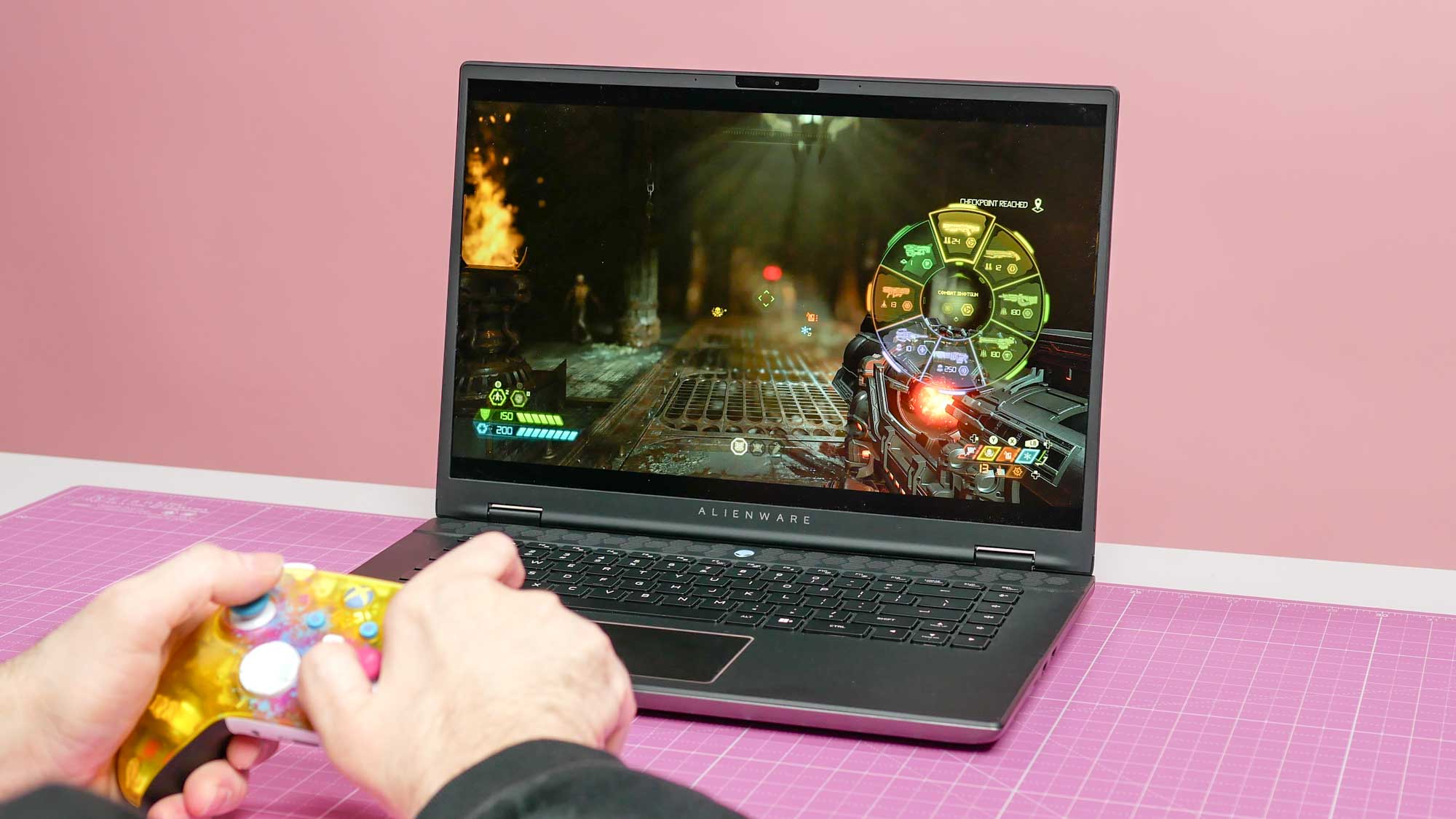
However, I'd be hard-pressed to ever replace my gaming rig for a gaming laptop. Since power efficiency is vital for laptops, their GPUs have a lower power draw compared to desktop GPUs. That prevents a notebook from overheating and also conserves battery life. However it means a laptop GPU isn't as powerful as a desktop GPU, which isn't as bound by such constraints.
Every laptop manufacturer I know boasts about their respective laptop's cooling solutions, but a laptop's comparatively small size means its cooling features can't match that of a desktop PC. To sum it all up, gaming laptops simply aren't capable of delivering the kind of power and performance of a gaming rig.
I'm showing my age with this one, but to me, working on a computer means sitting at a desk with a monitor (or two), a mouse, a mechanical keyboard and a big 'ol desktop. I've always seen working on a laptop as a backup if I can't use a traditional PC. Heck, even when I use a laptop, it's usually connected to a monitor, keyboard and mouse.
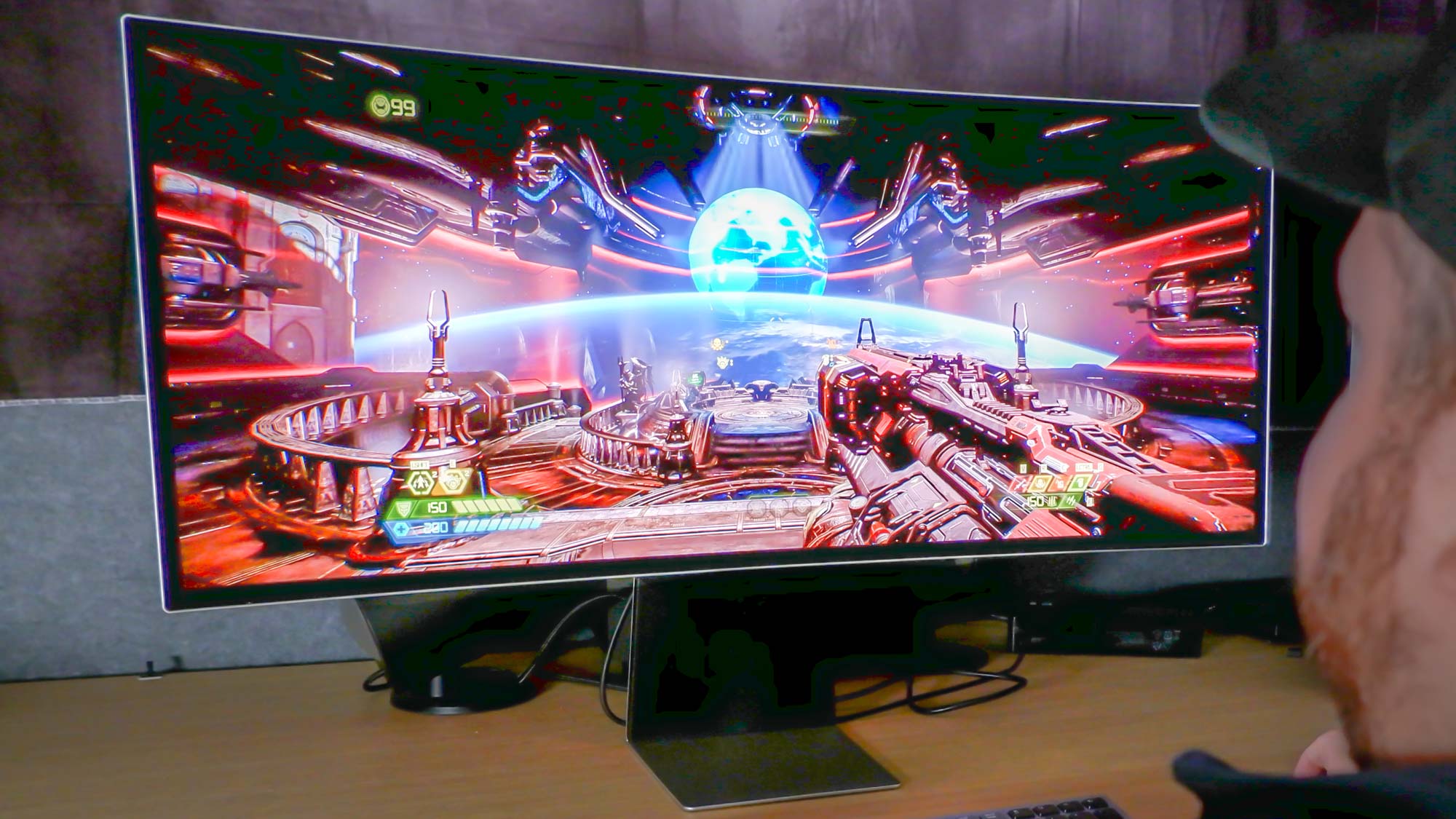
Basically, I try to replicate the desktop experience with whatever laptop I happen to be using or testing. If I'm going to spend $3,000+ on a computer, then it makes more sense to get a desktop PC that's more powerful than a laptop and that allows me to use whatever peripherals I desire.
All that said, I still think gaming laptops can be perfect for some people. If you're on a tight budget, something like the sub-$1,000 MSI Cyborg 15 is an excellent gateway to the world of PC gaming. I'd also recommend gaming laptops to folks who travel a lot and want to play games on something more powerful than a Steam Deck OLED. But if you're like me, you're better off with a beefy gaming rig since it offers more power and versatility.
Gaming laptops offer killer portability and versatility, but you have other options
When it comes to tech, minimalism is an important factor to consider. Sure, you could build a small form factor (SFF) PC or buy a mini PC and pair it with one of the best budget laptops for less or a similar price to a gaming laptop. However, at that point, you now have multiple computers you need to update and look after. If you want one device that does it all, a gaming laptop makes more sense. Plus, with a laptop docking station, you can still get that big-screen experience you would with one of the best gaming PCs.
I couldn’t see myself buying another [gaming laptop] at this point...because I’m no longer going back and forth from a college dorm every few months or living and working abroad like I did in my 20s."
The idea of being able to bring a full-fledged gaming PC with you anywhere you go certainly seemed impossible not that many years ago. While gaming laptops used to be quite thick and chunky, they’re now thinner and even more portable. Still though, they are heavier and thicker than a traditional laptop but not by that much anymore.
While I’ve owned gaming laptops in the past, I couldn’t see myself buying another one at this point. This is because I’m no longer going back and forth from a college dorm every few months or living and working abroad like I did in my 20s, where having a gaming laptop made a whole lot more sense than lugging a desktop PC built for gaming from country to country.
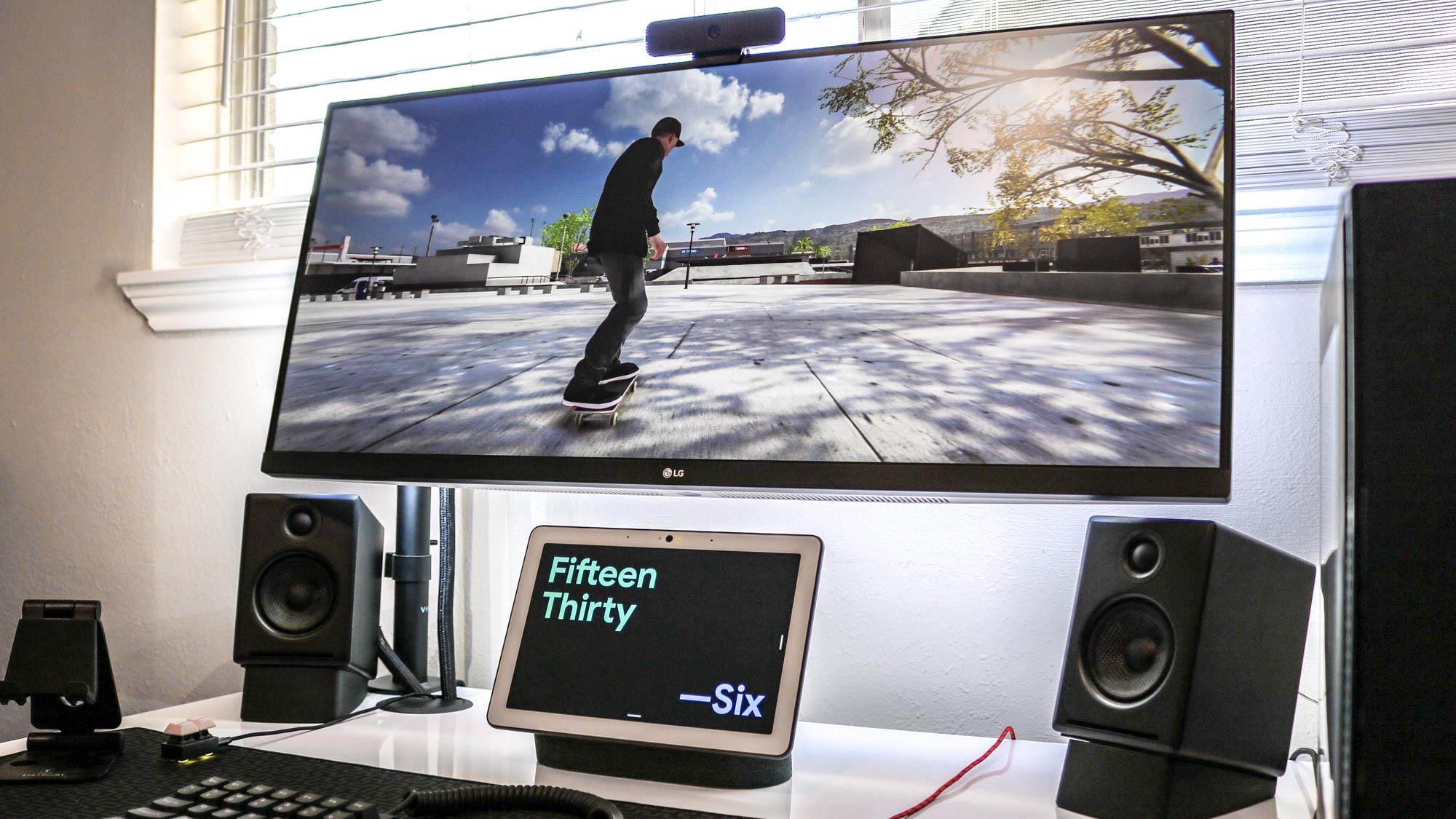
If you do find yourself traveling quite often — especially for work —- then a gaming laptop could be the right choice for you. However, during my years spent living and working in Korea, I fell in love with SFF PCs. These desktops are small enough to fit in a carry-on, and with the right preparations beforehand, you can bring them with you on an airplane without damaging any of their components. Another great thing about SFF PCs is that you can always upgrade your graphics card, SSD or other components down the line.
It’s also worth considering the games you play when deciding between a gaming laptop or a more portable, desktop PC. If you primarily play big-budget games with all of the graphics settings cranked up to the max, then a gaming laptop is likely still your best bet. However, if you’re more of a casual gamer or just play one game that isn’t too demanding — say FIFA, Rocket League or League of Legends — then you also might want to consider one of the best mini PCs if building your own isn’t something you’re interested in. Mini PCs have come a long way in recent years and you can now find ones with powerful integrated graphics that are capable of playing a wide variety of games. Likewise, you can also pair many mini PCs with an external graphics card for when you want better graphics but don’t want to build or buy your own SFF PC.


.png?w=600)




